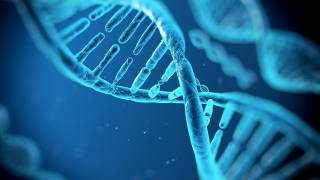Breakthrough in Understanding the Genetic Contribution to Intelligence
Rare mutations contribute to individual differences in personality and IQ.
Never has the nature vs. nurture question been more hotly debated than over the question of intelligence. To what degree are individual differences in IQ due to environment or heredity? Traditionally, the heritability of intelligence—the extent to which differences in intelligence are due to differences in genes—has been calculated by testing the intelligence of closely related individuals, such as twins, and comparing the results to tests of unrelated people. It has been much harder to examine the human genome directly in order to determine the extent to which genetic variation is associated with IQ differences.
However, our understanding of the genetics of intelligence is progressing quickly. Less than 10 years ago, a few studies had found gene variants associated with intelligence in certain population samples, but the results could not be replicated when the same tests were done on other populations. Today, on the basis of a survey of thousands of genes, we can assign someone a score that correlates moderately with performance on standardized tests which line up extremely well with IQ scores.
The genetics of personality has progressed less quickly than that of intelligence, but is also advancing, and a paper released this month takes us one step closer to solving two problems that still plague both fields.
First, there is the issue of “missing heritability.” This refers to a consistent discrepancy between the two kinds of heritability estimates. Studies of twins and adopted relatives consistently report higher heritability estimates than do studies that survey the genomes of unrelated individuals and predict trait similarity based on gene variants. Twin and adoption studies suggest that intelligence is between 50 and 80 percent heritable, while personality traits such as neuroticism and extraversion are between 35 percent and 50 percent heritable. Genome sequencing studies, by contrast, have typically estimated the heritability of intelligence at between 20 percent and 50 percent, and the heritability of personality to be between 0 percent and 15 percent. Those who believe that intelligence is largely influenced by environment argue that these lower figures discredit traditional estimates of heritability.
Secondly, there is the problem of how there can be substantial genetic variation at all in traits that contribute to evolutionary fitness. Heritability and evolution go together naturally, but if variations in intelligence and personality lead to differences in fertility—as they surely do—then we might expect evolution to have removed all significant genetic variation that does not contribute to the optimal values of these traits. Instead, we see lots of variation in these traits even within the same populations. How, evolutionarily, could this happen?
The concept of mutational load offers one possible explanation for both problems. Mutational load refers to the number of fitness-reducing mutations in a person’s genome. When these mutations have a large effect, selection removes them quickly, but mutations with small harmful effects remain in a population for many generations. For instance, a new mutation that occurs in a single individual and that decreases evolutionary fitness by 0.1 percent will last an average of 14 generations and afflict roughly 1,000 people before it is eliminated from the gene pool. Individuals end up differing in how many damaging mutations they have inherited and this may be one cause of genetic differences in mental traits. Because new random mutations happen each generation, this is one mechanism by which differences in a trait can remain heritable even in the face of natural selection which should have eliminated these differences.
Read the rest at American Renaissance.






















